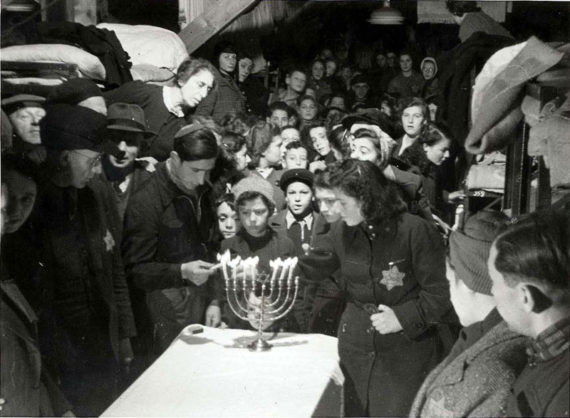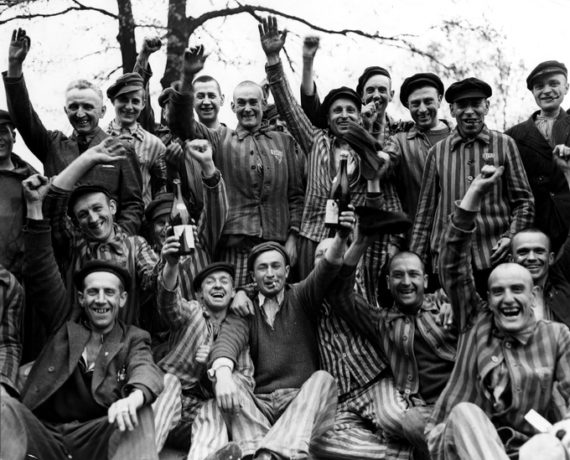Name: Margot Reinstein
School: Stern College for Women
Hometown: Teaneck, New Jersey
Passion: Jewish Education
When you look back at your college career, what experiences have made the deepest impact on you?
The very first class I took at Stern College was with Rabbi Mordechai Cohen, professor of Bible. From the very beginning, he urged us to take advantage of everything Yeshiva University had to offer. He challenged us to go to an event once a week, write an article for a student newspaper, seek out professors and speak with them after class, stay in for Shabbos, take the most rigorous classes we could handle and become active members of the YU community.
 His words have always stayed with me. They certainly affected my approach to college. I wanted to be involved in everything, from the Beit Midrash Committee to the Social Justice Society to the Israel Club and everything in between. In my second year I became president of iGive, a club that my co-president, Chana Weinstock, and I revamped to make sure there were consistent daily and weekly chesed opportunities for students, as well as programs like Simcha Deliveries, Yachad Carnivala and Cake Wars—a cake-decorating competition we helped create that raises funds and awareness for breast cancer.
His words have always stayed with me. They certainly affected my approach to college. I wanted to be involved in everything, from the Beit Midrash Committee to the Social Justice Society to the Israel Club and everything in between. In my second year I became president of iGive, a club that my co-president, Chana Weinstock, and I revamped to make sure there were consistent daily and weekly chesed opportunities for students, as well as programs like Simcha Deliveries, Yachad Carnivala and Cake Wars—a cake-decorating competition we helped create that raises funds and awareness for breast cancer.
After realizing the impact that even one club could make, I decided to run for president of the Torah Activities Council, whose mission is to create a more vibrant Judaism on campus. With 26 clubs under its auspices, we work to enhance the religious and spiritual life of every student on campus.
You’re a Legacy Heritage Fund Scholar, which means you decided to major in Jewish education very early on. Why?
Education is power and I think it’s the most important value you can have. As the grandchild of four Holocaust survivors, I’ve internalized how integral Jewish education is to the continuity of the Jewish people. Having grown up with five foster siblings, I learned at a young age that every Jew is a treasure. I wanted to become a Jewish educator to spread my passion for Judaism and love of learning to others. Initially I had planned to make aliyah right after high school, but when I learned about Stern’s incredible education programs and especially the Legacy Heritage Fund Scholarship, I realized Stern was the right place for me. [The program provides full tuition support in the form of grants and forgivable loans for undergraduate study and also includes one-on-one mentoring, professional development, intensive Hebrew language instruction and substantial fieldwork experience.]
A dream of mine would be to travel around the world observing the methodologies of schools and universities in different countries and communities. Then I’d make the trip again, staying for some time in each place to improve each institution.
What accomplishment during your time at YU are you most proud of?
The response of the student body after Hurricane Sandy.
Thousands of people only a few blocks away from Stern didn’t have heat, food, water or light. I recognized that as TAC president, I could really do something. I called Adina Poupko in the Office of Student Life and asked her if I could organize a mission, despite the fact that it usually takes at least two weeks to put an event together. Adina basically said, “Margot, this is an emergency situation. Use your resources however you can. We trust you.”
Her words empowered me. Within a few hours, with the help of YU’s Center for the Jewish Future (CJF), we had ordered a bus, close to $2,000 worth of supplies had been sponsored by the student councils and more than 50 students had signed up to join our mission. As we carried cases of water up flights of unlit stairs in buildings where elderly people lived on the Lower East Side, we saw the difference we were making then and there.
What will you be doing next year?
I’m deciding between two really special opportunities. One option is to spend time in Israel pursuing a master’s degree in Tanakh while teaching. I want to spend more time learning and improving my Hebrew so that I can come back to America and be the best educator I can be.
Another option I’m considering is living in Moscow for a year to create more educational and inspirational programming for the students there and provide care for Holocaust survivors. After spending my first winter break on a mission to Kharkov with the CJF, I was so inspired by the people I met there that I actually returned twice over the next two years and have developed a strong relationship with that community.



